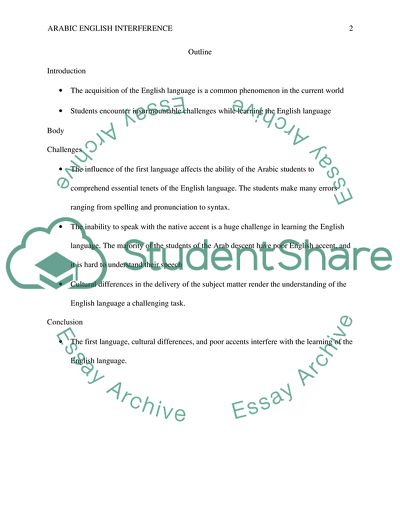Cite this document
(Arabic English Interference Essay Example | Topics and Well Written Essays - 1750 words, n.d.)
Arabic English Interference Essay Example | Topics and Well Written Essays - 1750 words. https://studentshare.org/education/1873740-arabic-english-interference-arabish
Arabic English Interference Essay Example | Topics and Well Written Essays - 1750 words. https://studentshare.org/education/1873740-arabic-english-interference-arabish
(Arabic English Interference Essay Example | Topics and Well Written Essays - 1750 Words)
Arabic English Interference Essay Example | Topics and Well Written Essays - 1750 Words. https://studentshare.org/education/1873740-arabic-english-interference-arabish.
Arabic English Interference Essay Example | Topics and Well Written Essays - 1750 Words. https://studentshare.org/education/1873740-arabic-english-interference-arabish.
“Arabic English Interference Essay Example | Topics and Well Written Essays - 1750 Words”. https://studentshare.org/education/1873740-arabic-english-interference-arabish.


